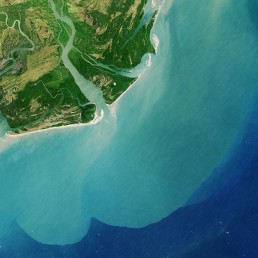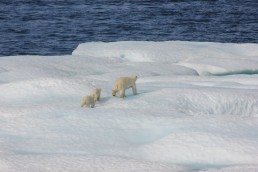Keeping an eye on sea level change
Keeping an eye on sea level change
Measuring the height of the ocean gives scientists a real-time indication of how Earth’s climate is changing, said Josh Willis, the mission’s project scientist at NASA’s Jet Propulsion Laboratory in Southern California. The oceans absorb about 90% of the excess heat from the planet’s warming climate. Seawater expands as it heats up, resulting in about a third of the modern-day global average sea level rise. Melting ice from land-based sources like glaciers and ice sheets accounts for the rest.
Source: NASA and read more

NASA: Scientific evidence for warming of the climate system is unequivocal
NASA: Scientific evidence for warming of the climate system is unequivocal
Earth-orbiting satellites and other technological advances have enabled scientists to see the big picture, collecting many different types of information about our planet and its climate on a global scale. This body of data, collected over many years, reveals the signals of a changing climate.
The heat-trapping nature of carbon dioxide and other gases was demonstrated in the mid-19th century.2 Their ability to affect the transfer of infrared energy through the atmosphere is the scientific basis of many instruments flown by NASA. There is no question that increased levels of greenhouse gases must cause the Earth to warm in response.
Ice cores drawn from Greenland, Antarctica, and tropical mountain glaciers show that the Earth’s climate responds to changes in greenhouse gas levels. Ancient evidence can also be found in tree rings, ocean sediments, coral reefs, and layers of sedimentary rocks. This ancient, or paleoclimate, evidence reveals that current warming is occurring roughly ten times faster than the average rate of ice-age-recovery warming.3
See more evidence at https://climate.nasa.gov/evidence/

Covid 19 reduces CO2 emissions drastically
Covid 19 reduces CO2 emissions drastically
We’re living through the biggest carbon crash ever recorded.
No war, no recession, no previous pandemic has had such a dramatic impact on emissions of CO2 over the past century as Covid-19 has in a few short months. Multiple sources indicate we are now living through an unrivaled drop in carbon output. But even though we will see a massive fall this year, the concentrations of CO2 that are in the atmosphere and warming our planet won’t stabilize until the world reaches net-zero.
Source BBC and read more





